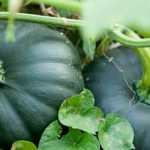Ants are a common sight in many gardens, but have you ever wondered how they might be affecting your vegetable garden? In this article, we will delve into the intricate relationship between ants and vegetable gardens. Understanding this relationship can prove essential for gardeners who strive to maintain a healthy and thriving garden.
Ants play a vital role in the ecosystem and can bring numerous benefits to vegetable gardens. From pollination to seed dispersal, these tiny creatures contribute to the overall health of an ecosystem. However, not all species of ants have positive impacts on vegetable gardens. Some can become pests that harm plants and disrupt their growth.
In this article, we will explore the various types of ants commonly found in vegetable gardens and discuss their characteristics, behaviors, and potential effects on garden plants. Furthermore, we will delve into the negative impacts of ants as pests in vegetable gardens, focusing on how they can damage plant roots, steal seeds, or eat young seedlings. Additionally, we will address how to recognize signs of ant infestation in your garden and provide practical tips for prevention and control.
By gaining an understanding of ants’ role in the ecosystem and their potential impact on vegetables gardens, gardeners can cultivate a harmonious balance between these tiny creatures and their cherished green spaces. Join us as we uncover the intricate relationship between ants and vegetable gardens.
The Role of Ants in the Ecosystem and Their Benefits to Vegetable Gardens
Ants play a crucial role in the ecosystem, and their presence in vegetable gardens can actually be beneficial for the plants. Understanding the important relationship between ants and vegetable gardens is essential for gardeners to effectively manage their gardens. In this section, we will explore the ecological role of ants and highlight their benefits to vegetable gardens.
Ants contribute to the overall health of an ecosystem through various means. They are known as ecosystem engineers, as they modify their environment by building extensive underground tunnels and nests. These tunnel systems aerate the soil, improving its structure and nutrient availability. Additionally, ant tunnels create channels for water infiltration, reducing soil erosion.
In terms of their benefits to vegetable gardens, ants play a significant role in pollination and seed dispersal. Some species of ants are efficient pollinators, moving pollen from flower to flower as they forage for food. This helps promote successful fruit set in various crops, leading to higher yields. Ants also aid in seed dispersal by carrying seeds back to their nests. This dispersal mechanism improves plant diversity within a garden or ecosystem.
| Benefit | Data |
|---|---|
| Pollination | – Certain ant species have been observed pollinating various crops such as tomatoes, peppers, and strawberries.
|
| Seed Dispersal | – Ants disperse seeds primarily by taking them into their colonies for food storage.
|
Types of Ants That Can Be Found in Vegetable Gardens
Vegetable gardens are teeming with diverse insect life, and ants are no exception. Understanding the different types of ants that can be found in vegetable gardens is crucial for gardeners in order to effectively manage and maintain their plants. While some ants may provide benefits to the garden ecosystem, others can cause harm to crops. By familiarizing themselves with the characteristics and behaviors of these ants, gardeners can take appropriate measures to protect their vegetable gardens.
One common ant species found in vegetable gardens is the Argentine ant (Linepithema humile). These ants are small and brownish-black in color, typically forming large colonies. Argentine ants have a sweet tooth and are attracted to sources of sugar such as nectar from flowers or sap from plants.
While they do not directly damage vegetables, they can interfere with pollination by extracting nectar without contributing to the transfer of pollen. Additionally, their presence may attract honeydew-producing insects like aphids, which can negatively impact the health of vegetable plants.
Another ant species commonly encountered in vegetable gardens is the carpenter ant (Camponotus spp). Unlike Argentine ants, carpenter ants are larger and black in color. They build nesting galleries in wood, including tree stumps or decaying logs that may be present near vegetable beds.
Although carpenter ants primarily feed on dead insects rather than plants, their excavation activities within wooden structures can weaken supports or create entry points for other pests or diseases. Gardeners should closely monitor for signs of carpenter ant activity near their vegetable garden to prevent structural damage.
Finally, fire ants (Solenopsis spp.) are another type of ant that commonly inhabits vegetable gardens, particularly in warmer regions. Fire ants are reddish-brown and aggressive when disturbed.
They construct large mounds that serve as their nests, often found on open soil next to vegetables or near irrigation systems. Fire ants are known to protect aphids and scale insects from natural predators, allowing these pests to proliferate and harm vegetable plants. Additionally, their painful stings can be a nuisance to gardeners and may cause allergic reactions in some individuals.
By recognizing the different types of ants that can be found in vegetable gardens, gardeners can better understand the potential impacts these ants may have on their crops. Armed with this knowledge, they can implement appropriate strategies to address any negative effects while fostering a healthy and thriving vegetable garden.
Ants as Pests
Ants can play a beneficial role in the garden ecosystem, but they can also become pests that cause unwanted consequences for vegetable gardens. It is important for gardeners to be aware of the potential harm that ants can cause and take preventive measures to protect their plants.
Damage to Plant Roots
One of the main ways that ants can negatively impact vegetable gardens is by damaging plant roots. Certain ant species, such as the common carpenter ant, are known for excavating tunnels in wood and soil. These tunnels can disrupt the soil structure around plants, causing damage to the roots and inhibiting their ability to absorb water and nutrients. Gardeners may notice stunted growth or wilting leaves on affected plants as a result.
Seed Theft and Seedling Destruction
Another issue that ants can cause in vegetable gardens is theft of seeds and destruction of seedlings. Some ant species have a preference for seeds, particularly those with high oil content. They may steal freshly sown seeds from the garden bed or dig up newly sprouted seedlings.
This can significantly reduce germination rates and lead to gaps in the vegetable garden. By removing seeds and young plants, ants not only disrupt the garden’s growth but also create an opportunity for other pests to invade.
Aphid Farming
In addition to direct damage, ants engage in mutualistic relationships with aphids, which can indirectly impact vegetable gardens. Ants are known to “farm” aphids by protecting them from predators and transporting them between plant parts. Aphids feed on plant sap, excreting honeydew as a waste product that attracts ants. The presence of large numbers of aphids sustained by ant farming can weaken plants, distort new growth, and transmit diseases.
Gardeners should be vigilant for signs of these unwanted consequences caused by ants in their vegetable gardens. Observing damaged plant roots, missing seeds or seedlings, or an unusual amount of aphids on plants may indicate the presence of ants. Taking proactive measures to keep ants away from vegetable gardens is crucial for maintaining a healthy and thriving garden.
Signs of Ant Infestation in Vegetable Gardens
Ant infestations in vegetable gardens can be detrimental to the health and productivity of your plants. It is important for gardeners to be able to identify the signs of an ant infestation and differentiate them from other pests. By recognizing these signs early on, you can take the necessary steps to prevent further damage and protect your vegetable garden.
One of the most common signs of an ant infestation in a vegetable garden is the presence of ant trails. These trails are often visible as narrow or winding lines along the soil surface or on plant stems. Ants use these trails to navigate between their nest and food sources, so finding them in your garden is a clear indication of their presence.
Another sign to look out for is disturbed soil or small mounds near plant roots. Certain ant species, such as fire ants, are known for building nests in the ground and displacing soil as they excavate their colonies. If you notice small mounds of soil around your plants, it could be a sign that ants have made themselves at home in your vegetable garden.
Additionally, keep an eye out for any unusual behaviors exhibited by your plants. Ants are attracted to sugary substances like nectar or honeydew produced by aphids, mealybugs, or scale insects. If you notice an unusually high population of these pests on your plants, it may indicate that ants are farming them for their sugary secretions.
To differentiate an ant infestation from other pests like aphids or caterpillars, it can be helpful to use sticky traps or adhesive tape. Place these traps near suspicious areas or on plant stems and leaves where you suspect ant activity. If you find ants stuck to the traps, it confirms their presence in your vegetable garden.
By being vigilant and observant of these signs, you can take proactive measures to address an ant infestation before it causes significant harm to your vegetable garden.
Preventive Measures
Ants can sometimes become unwanted guests in vegetable gardens, causing damage to plants and disrupting the ecosystem. Fortunately, there are several preventive measures that gardeners can take to keep ants away and ensure the well-being of their vegetable gardens.
One effective way to deter ants from invading vegetable gardens is by creating barriers. This can be done by placing physical barriers around the garden beds or individual plants. Materials such as diatomaceous earth, coffee grounds, or cinnamon powder can act as natural barriers that deter ants from crossing into the garden area.
Using natural repellents is another useful preventive measure. For instance, vinegar diluted with water can be sprayed around the perimeter of the garden or directly on ant trails to repel them. Essential oils like peppermint, citrus, or eucalyptus also have ant-repellent properties when mixed with water and sprayed on affected areas.
Companion planting is a gardening technique that involves growing certain plants together to benefit each other. Incorporating companion plants that repel ants, such as marigolds, tansy, or mint, can help prevent ant infestations in vegetable gardens. Additionally, interplanting vegetables with aromatic herbs like basil or thyme may confuse ants and make it less likely for them to establish colonies.
By implementing these preventive measures, gardeners can greatly reduce the likelihood of ant invasions in their vegetable gardens. These methods not only keep ants away but also promote overall plant health and harmony within the ecosystem.
Natural Remedies and Organic Ant Control Methods for Vegetable Gardens
While ants can provide some benefits to vegetable gardens, there are times when their presence becomes undesirable. When faced with an ant infestation, it is important for gardeners to explore natural remedies and organic control methods that will effectively manage the issue without harming the plants or the environment. This section will discuss the importance of organic pest control methods and provide a comprehensive list of natural remedies and solutions that can be used in vegetable gardens.
Organic pest control methods offer a safe and environmentally friendly approach to managing ant infestations in vegetable gardens. These methods prioritize the health of both the plants and the surrounding ecosystem, avoiding the use of harmful chemicals and pesticides. By using natural remedies, gardeners can effectively control ants while maintaining a balance between pest management and ecological health.
- Diatomaceous Earth: Diatomaceous earth is made up of fossilized remains of tiny aquatic organisms called diatoms. It works by dehydrating insects upon contact, including ants. Gardeners can sprinkle diatomaceous earth around plant beds or directly on ant trails to create a barrier that ants cannot cross.
- Vinegar: The strong smell of vinegar is a natural repellent for ants. Mixing equal parts vinegar and water in a spray bottle and applying it to ant-infested areas or directly on ant trails can help deter them from entering your vegetable garden.
- Beneficial Insects: Introducing beneficial insects like ladybugs or green lacewings into your garden can help control ant populations naturally. These insects prey on ants and other garden pests, reducing their numbers without causing harm to your plants.
- Planting Repellent Herbs: Certain herbs have repellent properties that deter ants from approaching your vegetable garden. Examples include mint, catnip, lavender, and tansy. Planting these repellant herbs around the perimeter of your garden can help keep ants away.
It is important to note that while these natural remedies can effectively control ants, a multi-pronged approach may be necessary for severe infestations. Additionally, it may take some trial and error to find the most effective remedy for your specific garden and ant species. By using organic pest control methods, gardeners can find a balance between managing ant populations and maintaining a healthy, thriving vegetable garden.
Cultivating a Harmonious Balance
Ants can be found in almost every ecosystem on the planet, and vegetable gardens are no exception. They play a crucial role in the overall health of an ecosystem and can even provide certain benefits to vegetable gardens.
However, there are also instances where ants can become pests and cause unwanted consequences in these gardens. In order to achieve a healthy and thriving vegetable garden, it is important for gardeners to understand and cultivate a harmonious balance between ants and their gardens.
While ants may seem like mere nuisances to some, they actually serve important ecological functions that contribute to the overall health of an ecosystem. They act as decomposers by breaking down organic matter and recycling nutrients back into the soil. Additionally, many ant species are effective pollinators and contribute to the reproduction of flowering plants, including vegetables. Some ants also aid in seed dispersal by carrying seeds away from parent plants, helping spread plant species throughout an area.
In vegetable gardens, certain ant species can be beneficial allies. For example, Argentine ants are known for their role in protecting plants from herbivorous insects by feeding on their eggs or smaller individuals.
Carpenter ants contribute to soil aeration through their burrowing activities, improving the structure of the soil for plant growth. By understanding these positive aspects of ants in vegetable gardens, gardeners can develop strategies to capitalize on these benefits while minimizing any negative impacts they may have on their crops.
Cultivating a harmonious balance between ants and vegetable gardens involves taking measures to control potential pest infestations without completely eradicating all ant populations. It is essential to carefully monitor garden beds for signs of ant presence or damage caused by them.
Gardeners should take proactive steps such as creating physical barriers around garden beds or using natural repellents like cinnamon or white vinegar to deter ant colonies from invading their crops. Companion planting techniques can also be employed by strategically cultivating plants that naturally repel ants alongside vulnerable vegetables.
By adopting an integrated pest management approach, gardeners can foster a coexistence between ants and vegetable gardens. This involves recognizing the importance of minimizing pesticide use and instead opting for organic pest control methods that will not harm beneficial insects or contaminate the produce. Through this cultivation of a harmonious balance, gardeners can create a healthy and thriving vegetable garden that flourishes with or without the presence of ants.
Conclusion
In conclusion, it is clear that ants play a significant role in vegetable gardens, both positive and negative. While they contribute to the health of ecosystems through pollination and seed dispersal, they can also cause damage to plants by damaging roots, stealing seeds, or feeding on young seedlings.
However, it is important for gardeners to remember that not all ant species are harmful to vegetable gardens. Some species even have beneficial effects on plant growth and soil health. It is crucial to recognize the signs of ant infestation in vegetable gardens and take appropriate measures to prevent or mitigate their impact.
Through the use of preventive measures like creating barriers and employing natural repellents, as well as organic pest control methods such as diatomaceous earth or beneficial insects, gardeners can maintain a healthy balance between ants and vegetable gardens. Adopting an integrated pest management approach that promotes harmony rather than eradication allows for the coexistence of ants and the thriving of vegetable gardens.
Frequently Asked Questions
Should I kill ants in my vegetable garden?
Killing ants in your vegetable garden is a decision that depends on your personal preference and the specific circumstances. While ants can be beneficial as they aerate the soil and help break down organic matter, some species of ants can cause harm to your garden by feeding on plant roots or protecting other pests like aphids.
If you notice significant damage to your vegetable plants or if the ant population becomes overwhelming, you may consider taking action to manage their presence.
Will ants eat my vegetable garden?
Ants are generally not known for directly eating vegetable plants. Instead, they are more likely to feed on sugary substances like nectar, honeydew produced by aphids, or fallen ripe fruits.
However, it is worth noting that certain species of ants can indirectly harm your vegetable garden by fostering colonies of pests such as aphids or scale insects. These pests feed on plant juices and excrete a sticky substance called honeydew, which can attract ants and promote their presence in the garden.
How do I get rid of ants on my vegetable plants?
To get rid of ants on your vegetable plants, avoid using chemical pesticides that may be harmful to both you and the environment. Instead, try implementing natural methods of ant control. One approach is to disrupt their trails by spraying diluted vinegar or lemon juice along known ant pathways or around the base of affected plants.
Additionally, applying food-grade diatomaceous earth around the perimeter of your garden can act as a physical barrier against ants while being safe for vegetables. Another option is encouraging natural predators of ants such as birds or beneficial insects like ladybugs in your garden since they can help keep ant populations in check. Regularly removing fallen fruits and maintaining good sanitation practices will also discourage ants from being attracted to your vegetable garden.

If you’re looking to get into vegetable gardening, or are just looking for some tips on how to make your current garden better, then you’ve come to the right place! My name is Ethel and I have been gardening for years. In this blog, I’m going to share with you some of my best tips on how to create a successful vegetable garden.





